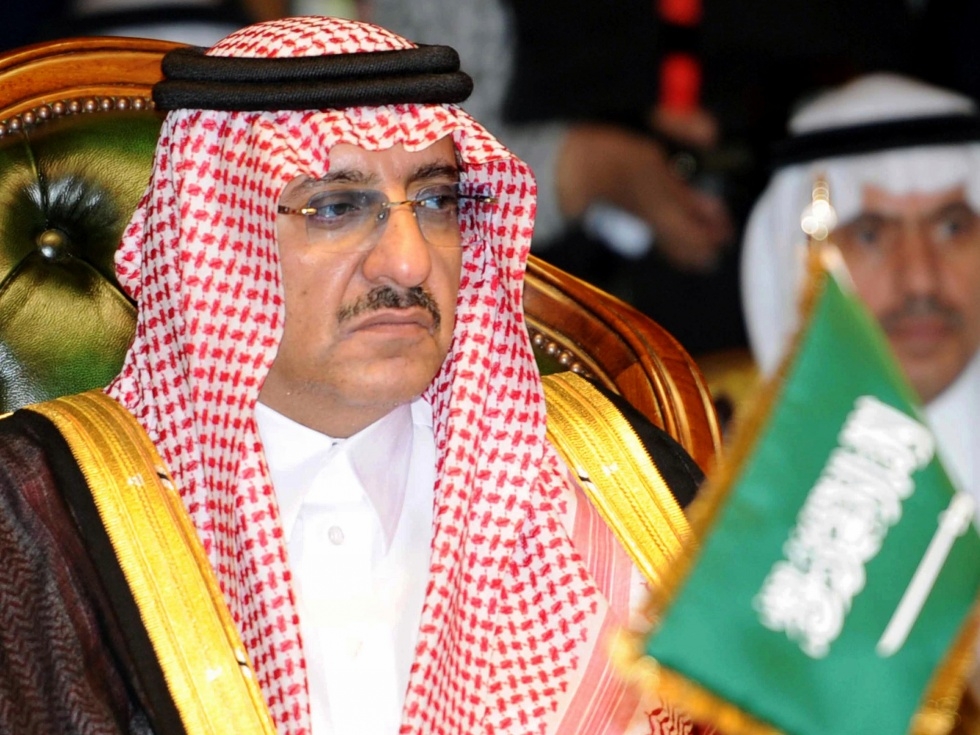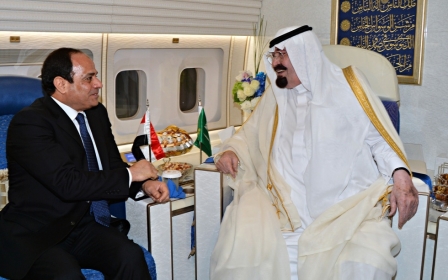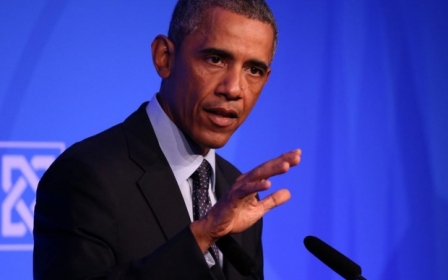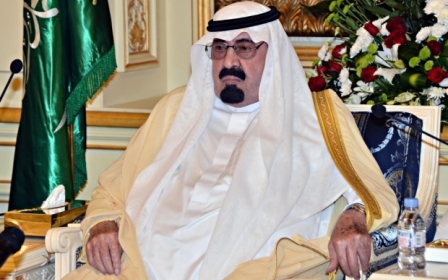Mohammed bin Nayef kingpin in new Saudi Arabia: country experts

King Salman bin Abdulaziz al-Saud is now the ruler of Saudi Arabia, and has moved swiftly to appoint his son, 34-year-old Mohammed bin Salman, as Defence Minister and head of the Royal Court.
The newly-anointed monarch promoted Muqrin bin Abdulaziz to Crown Prince, now first in line to the throne, from being deputy, and appointed 55-year-old Interior Minister Mohammed bin Nayef as the second heir.
The new appointments herald a new era in Saudi monarchical politics, marked by the resurgence of the “Sudairi Seven,” a powerful alliance of sons of King Abdulaziz named after their mother Hassa bint Ahmad al-Sudairi.
The late Abdullah – whose mother was from the Shammar Bedouin tribe – was not one of the seven Sudairi brothers, and the first indications suggest that his men are being pushed out of power.
Abdullah’s son Mutaib – who is minister of the National Guard – has been overlooked to become deputy Crown Prince in favour of Mohammed bin Nayef.
His former head of the Royal Court, Khalid al-Tuwijri, has been replaced by the young Mohammed bin Salman.
This has been reported as having immediately undermined Abdullah’s legacy and affirmed the renewed power of the Sudairi alliance.
Salman, in his first speech as King on Friday, pledged to maintain continuity in Saudi Arabia under his stewardship, although at the age of 79 and reportedly suffering from Alzheimer’s disease, it is unclear how much longevity he has.
Middle East Eye spoke to experts on Saudi Arabia who gave their thoughts on the new King and the future of the powerful Gulf state.
Christian Koch, director of the Saudi-backed Gulf Research Centre
“The appointment of Mohammed bin Nayef as deputy crown prince sets the stage for the next generation, although that stage had already been set somewhat. The appointment is not a surprise. King Abdullah himself took the first step when he named Mohammed bin Nayef Interior Minister and thus opened the door for the younger generation to move in.
The choices, also of Mohammed bin Salman, shows that a lot of discussion has been going on and preparations made for the passing of the King. It also shows that the family can and will move quickly when it needs to.
This move is meant to quell any discussion about the stability of the Al Saud and provide assurances to the Saudi people that there is a clear way forward. Given all the regional turmoil, the last think the family now wanted was further speculation about Al Saud rule.
It should also be remembered that many of the next generation have been in positions of authority for quite a long time so the transition was bound to go more smoothly than many anticipated. King Salman has provided a clear way forward and he will expect all of the family to fall in line in support of his decisions.
I think the speech of King Abdullah and delivered by now King Salman a few weeks ago on the opening session of the Shura Council was significant. It was clearly stated that the leadership is aware of the challenges faced by the kingdom and their consequences. One should not underestimate the family’s awareness on this front".
Rasheed Aboualsamh, Saudi-American columnist for O Globo
“The appointment of Prince Mohammed bin Nayef as deputy Crown Prince does mark the true beginning of a generational shift of power within the House of Saud to a younger generation. Prince Mohammed is only 55, much younger than the current King Salman who is 79 and the king who just passed away, Abdullah, who was 90.
But it does not answer all of the questions of how power will shift within the royal family, but shows that it has begun. Nevertheless, it should be pointed out that many of these decisions are taken months in advance and that the royal family has the Allegiance Council that decides on the line of succession.
So all of this Western preoccupation with transitions possibly not going smoothly in the kingdom has never come true. If there is much jockying going on within the royal family, with alliances being made and fights breaking out, we hardly ever hear about it because the family is ultra-discreet and never talks about these things in public. They always present a united front to the world.
The appointment of Prince Mohammed bin Salman as Defence Minister, who at only 34 years of age makes him the youngest Defence Minister in the world, does indeed herald the new roles being given to the younger generation of royals. His position is one of the most important in the Saudi government, so all will be watching him closely to see how he performs in his new job.
Although Saudi Arabia is a monarchy and the King is the absolute ruler in theory, in practice he has to rule in consensus with the senior royals, senior religious officials, the Shura Council and public opinion.
The king is not immune to any of these influences as we have seen with the flogging of the Saudi blogger Raif Badawi recently, which has been postponed twice on the orders of the Saudi ruler after international outcry against the punishment. Saudi Arabia is very sensitive to international pressure, especially when its reputation is repeatedly called into question and also when it is battling the ideology of the Islamic State (IS) group in Iraq and trying to present itself as a much more just and moderate version of the IS.
Having said that, stability and continuity is the name of the game here, and I do not forsee any big changes in Saudi domestic and foreign policies under the new King in the near- to medium-term. King Salman is staunchly pro-American but socially very conservative".
Ali al-Ahmed, Saudi opposition figure and director of the Washington-based Gulf Institute
“Mohammed bin Nayef visited Washington in December [2014] and the Saudi press reported that many American officials met with him. He didn’t visit the officials, they came to him at his residence. That was the start of the story – he was interviewed for the job [of king], basically, by the Americans, including Obama, Biden and Kerry. He is America’s choice for the job.
Mutaib bin Abdullah [the late king’s son and minister of the National Guard] was in Washington three weeks before bin Nayef and was ignored.
Salman is not really able to do the day-to-day job of being king – not just because of his early onset Alzheimer’s disease but also due to his age - he’s 79. [Crown Prince] Muqrin has very little power. Now the most effective leader is Mohammed bin Nayef.
Mohammed bin Nayef's prominent role will be reflected in the policies of Saudi Arabia moving forward. As we know, in his role as Interior Minister, he has been brutal in detaining and convicting human rights activists and female drivers, and repressing the Shiite protesters in the Eastern Province.
It is a ridiculous decision to appoint the 34-year-old Mohammed bin Salman as Defence Minister. Around three years ago he started in an entry-level government job and now he’s the Defence Minister – he has no experience whatsoever in running a ministry.
He is known for his arrogance and carelessness in terms of acting without responsibility – he does this because he is Salman’s son and has a strong sense of entitlement. I think he will have a lot of problems running the Defence Ministry.
All of this falls in the favour of Mohammed bin Nayef who might use Mohammed bin Salman as a tool to increase his own standing and power.
My expectation is that under Salman Saudi Arabia will be much more oppressive. It will harden the police state – the number one mover and shaker is Mohammed bin Nayef, who has a security-minded mentality and does not tolerate any dissent.
Khalid al-Tuwijri [formerly head of the royal court] is out of his position but will remain with Mutaib.
Mutaib still has the National Guard, so he cannot be dislodged from power completely.
But make no mistake - Mohammed bin Nayef is now de facto king of Saudi Arabia".
New MEE newsletter: Jerusalem Dispatch
Sign up to get the latest insights and analysis on Israel-Palestine, alongside Turkey Unpacked and other MEE newsletters
Middle East Eye delivers independent and unrivalled coverage and analysis of the Middle East, North Africa and beyond. To learn more about republishing this content and the associated fees, please fill out this form. More about MEE can be found here.




